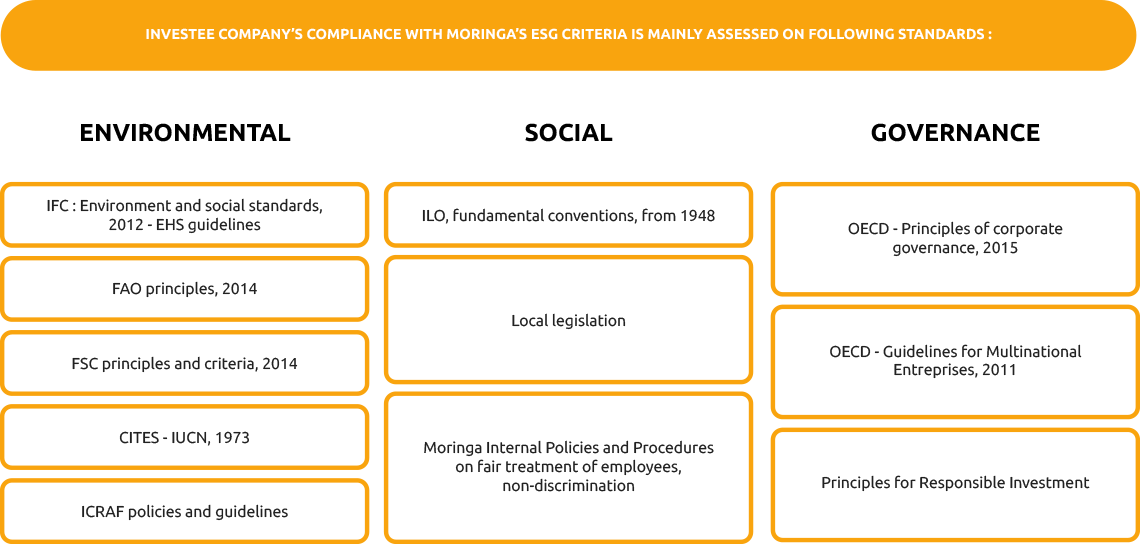Sustainability underpins all aspects of Moringa’s approach. Focusing on four elements in a competitive context
Moringa aims to show that it is possible to achieve both profitability and positive social and environmental impacts at the same time, bringing a positive change to the overall ecosystem of the investee company and a path towards sustainable development.
To ensure this positive change, Moringa follows strict guidelines – an Environmental Social and Gouvernance Management System (ESGMS) – first to avoid social and environmental risks and then to foster positive impacts (i.e. IFC performance standards, FAO principles, ILO conventions, OECD guidelines, etc.).

Established by Moringa and improved by Impact Value©, the ESGMS is a dedicated analytical framework implemented through a detailed methodology and toolkit that guide relationships between Moringa, its portfolio companies and its broader range of stakeholders.
In a pre-investment phase, the ESGMS ensures that Environmental, Social and Governance risks and opportunities for value addition are well identified and measured. During project implementation a corrective action plan is followed, allowing the investee company to manage identified risks and to enhance the positive impact of the investment. Environmental and social monitoring is being set up with the assistance of ONF International to avoid any negative impacts using state-of-the art techniques (such as satellite imagery analysis).
When and where relevant and possible, Moringa’s projects will also seek relevant third-party certification (e.g. FSC, Rainforest Alliance, UTZ, etc.).
